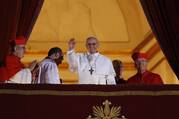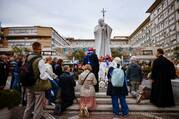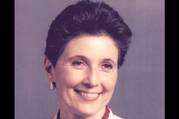Loading...
Click here if you don’t see subscription options
Click here if you don’t see subscription options

FaithFaith and Reason
How and why should the church use empirical evidence for ministry and discernment? Empirical data and engagement with the broader context of Catholicism can help us to better understand the life of the church.

FaithFeatures
How do Catholics in the United States understand the liturgy today? Five different approaches are prominent, but some share more with Pope Francis' synodal and liturgical vision.

FaithVatican Dispatch
As he enters his 13th year as pope, Francis stands tall as the moral authority in today’s world, a voice pleading for humanity, peace and respect for the dignity of all people.

Politics & SocietyNews
“The threat of mass deportations is untenable and immoral and demands a credible response,” Bishop Mark J. Seitz of El Paso, Texas, wrote in an open letter to “all people of faith and everyone committed to the common good.”

FaithPodcasts
On “Inside the Vatican,” Ricardo da Silva, S.J., talks with Gerard O’Connell about Pope Francis’ latest health updates and Cardinal Fernández’s recent comments on gender dysphoria.

FaithVatican Dispatch
Pope Francis’ clinical condition “remains stable” within “the complexity of his overall situation,” and the chest X-ray carried out yesterday “confirmed the improvements that had been registered in the previous days.”

FaithNews
During the nearly two-hour liturgy, Cardinal McElroy encouraged the faithful of his new archdiocese to be “pilgrims of hope in a wounded world.”

FaithScripture Reflections
A Reflection for Thursday of the First Week of Lent, by James T. Keane

FaithScripture Reflections
A Reflection for Wednesday of the First Week of Lent, by Grace Lenahan

Arts & CultureCatholic Book Club
Catherine Mowry LaCugna, who died in 1997 at only 44 years of age, brought new life to Trinitarian theology and inspired a generation of scholars.
